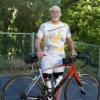Search the Community
Showing results for 'november bypass'.
Found 17,501 results
-


Not too thrilled since my second fill...
Thegirlnextdoor posted a topic in POST-Operation Weight Loss Surgery Q&A
Hi everyone, I had my second fill almost 3 weeks ago . I'm only down 3 pounds since then and on top of that ,when I eat ,it feels difficult at time(uncomfortable). Is this what they mean by bandster hell ? Is this normal ? How can I get back to my faster weight loss? Any suggestions would be great. I'm pretty bummed out about it. I've lost 60 pounds in a years time but only 30 since the banding back in November. Have any of you experianced this ? Should I go back to a more liquid diet? -


1 year 4 months post op
Sue Magoo replied to brattyAsh's topic in Weight Loss Surgery Success Stories
Hello: First, congratulations! Second, any regrets? Any issues you want to share with someone who's considering bypass? What Vitamins and/or supplements do you take? Do you, or did you have #2 issues in the bathroom postop? Do you feel hungry much? Thanks for your time answering my questions. Sue -
Yay for getting a date!! I got my approval in November, but my surgeon didn't have anything available until February...I felt like I waited For.Ever. Good luck to you!!
-
After an emergent band removal and 6 months healing time, I finally got my RNY bright and early Monday morning!
-
Thinking about going from my band to either. I have had band for 3 years and had list 70lbs first 2 yrs then problem with band , gained it back , now weigh more than I did when I started. I'm so ready to give up hope. I hate being this big but all the exercising, dieting, and it all seems to just not work for me. Any suggestions ?
-
I hope your bypass works better for you than the band did. Regardless of the method may you have a happy and fit life
-


Gastric sleeve to bypass
MamaTo3inNH replied to mickally's topic in POST-Operation Weight Loss Surgery Q&A
I'm very disappointed in your doctors. My center stressed, at each and every informational meeting, that if you have even mild regular heartburn bypass is the best route to take. They should have you taking omeprazole (maybe not til your 3 week check up) - that may help. It's taken for six months to prevent ulcers. If it helps, stay on it. That's what I was on pre-RNY for my reflux. Hopefully you're on the mend soon -
I just got home from the hospital. The surgery went well. I'm running a mild fever if it gets worse I'll have to go back in. The pain is pretty bad.
-


Self Image Issues After Surgery
CurvyCat replied to unaguy05's topic in POST-Operation Weight Loss Surgery Q&A
Self-image is such a strange thing. I get more self-conscious as I lose weight, and it's always been the case for me, every time I have lost it. My husband doesn't get why I deflect any commentary on my weight loss, why I don't revel in the positive feedback. I don't know exactly, but I am definitely more critical of my appearance the smaller I get. The tummy bulges bother me more now because I can *almost* hide them, whereas before I just took them in stride because there was no disguising them. I've gained and lost so many times, and it's always like this. The last time I did a little better, and hopefully this time I can get comfortable with myself in a smaller body for the long haul. I've known a lot of women who've had bypass surgery and this outlook is less common than others, but definitely is not rare or unusual. We've just got to work on getting comfortable in our new bodies, for the long haul. -
I am almost a year out. What you are feeling is normal. Soup is like water, it won't fill you up. My doctor said to drink as much soup, water etc.. as I like. You will learn that to feel full you need to eat things with more consistancy to them. Just take it day by day. Some people don't understand that lap band is way different than gastric bypass so we can fit more into our stomach.
-


Did anyone start with a BMI in the 50's? What were your results?
winkie80 posted a topic in LAP-BAND Surgery Forums
I had my surgical consult today and it has set my mind spinning! I have a high BMI of 55. My surgeon, though absolutely willing to move forward with lap band for me, strongly suggests I consider Sleeve or Bypass. He feels I may be disappointed with my weight loss results with the band. I have been reading posts on these boards for a few months now and I have seen very few people with a starting BMI/weight as high as mine (weight is 354). My surgeons office recommends an ideal weight of 155 for me (I'm 5'7) where as I would be happy with 175. The largest results in my research I have seen with the band were in the 100lbs range. Though this is amazing that would put me at 250. I guess what is really discouraging me is all the posts on here within the last few weeks regarding failing bands and low weight loss. If I am going to have surgery I want it to give me the tool that I need to assist me. I need some inspiration from those who started with high BMI's please. The great thing is I can start the process of the supervised diet and psych eval without making my final decision so I have some more time for research on both. I will be attending support groups for those who have gone through Band and Bipass surgery to hear their stories as well. Thanks! W -
I am seeing my nutritionist today and I don't want to get on scale. The month of November has been the worst month for me since being banded. I have found sweets not good. I am going in to get back on track. I would just love to skip the weighing in part. Haha.
-
What a coincidences I was watching a video about that yesterday, those vitamins patch.. but the lady that was using it still was doing the chewable one as well, cuz she ask and was told that your body doesn’t adsorb as much .. so what she does is .. when she misses a day or something she stick the patch . Or does both cuz she know with “bypass”... what she has ...she doesn’t absorb much either way. I’m getting the chewable ones. Also I found centrum liquid .. which is great too. “There will be obstacles. There will be doubters. There will be mistakes. But with hard work, there are no limits.” —Michael Phelps
-
I'm still about a month away from my Gastric Bypass Surgery and am looking at options for vitamins, I'm already on a handful of medications a couple times a day and am not all that excited about throwing a handful of vitamins into the mix. Is anyone using vitamin patches? Are they effective? Seems like an easier option but want to get some input before I buy any.
-
Because getting proper nutrition in is so hard after weight loss surgery, a lot of surgeons wont want you to get pregnant for 18 months following your sleeve or bypass. Its just not safe for you or the baby.
-
I stumbled upon this excellent article discussing NJ Governor Chris Christie's weight struggle. As a NJ resident, it is a frequent topic when discussing him. I think this Dr. makes an excellent comparison of morbid obesity to heart disease when discussing societal discrimination. Interested to hear others opinions. THE MORBID OBESITY EPIDEMIC AND GOVERNOR CHRISTIE by Mitchell Roslin, MD, FACS As a physician that specializes in the treatment of morbid and severe obesity, the recent exchange between Governor Chris Christie and Dr. Connie Mariano, made me contemplate many of the misunderstood and misappropriated issues and perceptions that surround obesity in our society. Governor Christie decided to appear on The Late Show with David Letterman. To demonstrate his humor and humility, he pulled a doughnut from his pocket and began to eat while Letterman chuckled. The following day, a former White House physician, Dr. Connie Mariano declared that the Governor’s weight was no laughing matter. Furthermore, she stated that he was a ticking time bomb, and if elected president, could die in office. To some, these comments may represent the honest opinion of a famous physician. From my perspective, they demonstrate how unique obesity is over every other medical condition. The difference in our collective perception and beliefs regarding obesity and other chronic medical issues can be shown by comparing the medical history of Governor Christie to that of former Vice President Richard Cheney. d**k Cheney was 59 years old when he was elected, with George W. Bush, to serve as Vice President. As Vice President, he was barely one medical event or disaster away from becoming Commander in Chief. While Dr. Mariano may believe that Christie is a ticking time bomb, Cheney was alive in 2000 because of timely medical care and the incredible advancements made in his lifetime in the management of coronary artery disease. Before, during, and after office, Cheney has been the recipient of virtually every new procedure and technique to treat heart disease. He had his first major heart attack at the age of 37. Prior to becoming Vice President he had four heart attacks, a cardiac arrest and underwent open-heart surgery. While in office, he had multiple angioplasties and stents placed, as well as an implantable defibrillator to treat a potentially fatal arrhythmia. After leaving office, he underwent heart transplantation. While many would not describe Cheney as an empathetic figure, his medical condition was handled with respect and compassion. Despite the multiple cardiac events that occurred, his capacity to serve – based on his medical condition -was rarely questioned. Where it was fair to debate his policies and positions, he was never attacked and/or viewed as being incapable because of the severity of his heart disease. During hurricane Sandy and its aftermath, we all saw Governor Christie climbing through rubble and traveling throughout the state of New Jersey. Appearing with President Obama, he was vibrant and full of energy. Appearing on television regularly, his size could not be missed. However, he never appeared to be limited or impacted by his girth, nor was he hospitalized or treated for any medical issue during this stressful period. The contrast and irony is startling. Christie, who has never had a major medical issue in office, is labeled to be a ticking time bomb. Yet, little attention has been paid to Cheney’s extensive medical condition and complex cardiac history. In fact, you could say that his bomb had already detonated. The difference? Christie’s obesity is not transparent. Everyday, every second, all can see his girth. In contrast, the blockages in Cheney’s heart cannot be seen. While intellectually, we can understand their significance, an angiogram or a map of his circulation is not shown by his side. Much more is also taking place. It is with trepidation and even fear of legal implications that one questions whether someone can or cannot perform their professional tasks secondary to a medical condition. Yet, the implication of Dr. Mariano’s statement is that corporeal weight and body habitus can be implicated in the determining whether someone is qualified for employment. She questioned whether Governor Christie would be able to perform the duties of national office. Thus, on the basis of size, he may not be the right man for the job. If we extrapolate this thought, it would mean that all employers could believe that a person of ideal weight many be better able to work in their establishment than a severely obese individual. Thus, when it comes to obesity, it is acceptable to discriminate. Unfortunately, this is not new news. To protect individuals that have other medical conditions, we have even passed laws such as HIPAA to preserve their privacy. It certainly can be argued that if you are an employer, you would not want to hire someone with a similar cardiac history as Vice President Cheney. Individuals, such as Mr. Cheney, are more likely to miss work time and cost more to employers and tax payers to provide sufficient health care, regarding their dire conditions. That is why, for most positions, your medical record is kept private. In contrast, in the case of morbid obesity, there is no anonymity and a test is not needed to diagnose. It is physically and socially self-evident. Imagine someone of Dr. Mariano’s status commenting on an issue of race, religion, sexual orientation, or even other any other status of adverse medical condition. Her comments would be treated with outrage. It seems that obesity is the last bastion of accepted prejudice. In a world were we have become socially and legally evolved enough to understand and accept all divergent issues, whether they be diverse in ethnic, religious, economic, racial and sexual identifications, obesity still endears itself to cultural stereotyping and profiling. It may be my prejudice, but I think Dr. Mariano was saying much more with her comments: if you are not able to balance your caloric intake, do you have the self-control to balance our budget? Can a person who is morbidly obese be a proper role model to be Commander In Chief? If you do not have the discipline to manage yourself, how can you manage our country? Also if you are not potentially in denial, would you not seek treatment and accept responsibility for creating then solving your own medical problem that would impede you from such? All such simply continues to add to the misperceptions and misappropriations regarding obesity. They also explain why surveys and studies have shown that people would rather be dead than severely obese. No matter how ridiculous this sounds, when you are obese, society looks at you with scorn. You are responsible for your condition. As a result, little compassion is expressed. Besides having a strong family history for heart disease, Vice President Cheney smoked heavily for 20 years prior to his first heart attack. Although, this certainly contributed to his heart disease, his heart disease was viewed as a medical condition, and not equated with character flaws. Obesity is not viewed with such largesse toward any individual. Another unspoken message was that Governor Christie was in denial or should be actively working to lose weight. The truth, in my opinion, is that he struggles everyday and is very much aware of the issue and frustrated by it. It has been my experience that people who are successful and severely obese wonder: ‘how can I succeed in most everything else and still fail this battle?’. So what have we learned about obesity? Is there truth to Dr Mariano’s comments? Is this just another essay that states that no one should be held accountable or have personal responsibility? Severe and morbid obesity combined with a sedentary lifestyle is the biggest medical issue that people, and de facto, our country faces. Despite medical innovation, life expectancy is expected to decline, only seconded to the epidemic of obesity and diabetes. Thus, clearly, someone that is as obese as Governor Christie is at a substantially increased risk of significant heath detriment than someone of similar age, who has a normal body mass. His statement that he is the healthiest fat person is one that I hear commonly. It usually means that he requires no medication for hypertension, diabetes and hypercholesterolemia. Obesity is representative of an energy imbalance. The causes are multifactorial and the impact variable. Not all severely obese individuals are diabetic or prone to heart disease. Those such propensities depends on the distribution of the adipose or fat tissue. Those that have central obesity, especially with fat in their abdominal cavity, are much more likely to have metabolic disease. When the majority of fat resides in the subcutaneous tissues these co-morbidities are less likely. However, their excess adiposity has other consequences. There are only few people that I have cared for that are Governor Christie’s size that do not have sleep apnea. Sleep apnea is a condition that generally results in patients awakening at night to get adequate oxygen, due to the stress on the body of excess weight. The blood vessels in the lungs contract and this puts strain on the heart. As a result, the heart is more likely to have rhythm disturbances. In addition, excess corporeal weight causes undue and substantial wear on joints and the lower extremities. It is a misnomer that Gov. Christie does not care about his physical state or is in denial about such. Besides surgery, there is absolutely no documented or successful treatment option. Laymen watch popular television shows like the Biggest Loser or daytime talk shows and think that weight loss is easy. Unfortunately, the majority of people that lose large sums of weight – regardless of whatever method – suffer cataclysmic recidivism. Intuitively, most believe that we can be trained or be taught to change our behavior and maintain weight loss. However, science contradicts these widely-held beliefs. The body resists weight loss. When caloric intake is curtailed, we respond by becoming more efficient and reducing our metabolic rate. A registry is kept of people that have lost substantial sums of weight and maintained the weight loss for five or more years. On average, to preserve their weight, at the new loss state, they eat less than 1200 calories and exercise more than an hour per day. The story of Dr. Stuart Berger is typical of the weight loss struggle. Dr. Berger was perhaps the first famous television diet doctor. While in medical school at Tufts University, he weighed in excess of 400 pounds. He lost a substantial sum of weight and authored The South Hampton Diet. His diet book was widely-publicized and he became a weight-loss guru. He died from heart disease at the age of 42. At the time of his death, his weight was again 400 pounds. With the development of minimally invasive techniques, bariatric surgery has become safer than virtually any other abdominal or weight-loss operation. Despite these improvements, surgery is a frightening proposition. Family and friends who believe that all that is needed is further education and more willpower discourage many people. This circle also differentiates obesity. In most every other condition when you reach a threshold, treatment is mandatory. In obesity, the desperation of the patients and their desire to seek options determines who gets treated. The differences in how obesity is handled and viewed continue when the decision to pursue treatment occurs. Rather than have a physician decide when a patient is ready or qualifies for a specific procedure, insurance companies require a detailed pre-certification process. This typically includes documentation of a recent diet that is supervised by a physician and includes monthly medical visits. For people like Governor Christie, this means that their life-long struggle is unimportant. Instead, they need to duplicate and relive their frustrations to obtain treatment. Such an approval process exists in no other area of medicine. d**k Cheney did not have to document his gym regimen before one of his many heart surgeries was approved. When proper treatments are met with such difficult fiduciary remuneration, it is not surprising that there are few new remedies. It is estimated that 36% of the American population is now obese. At current growth rates, by the year 2050 the entire population will be obese. Thus it would seem that products that effectively treat obesity would have a large market and a priority for ambitious entrepreneurs. Yet, this is not the case. There has been only one medical device and one pharmaceutical product approved by the FDA in the past ten years. The reasons are multifold. There is no agreement about who should be treated for obesity. There is no agreement as to what constitutes successful or meaningful treatment. Additionally, obtaining insurance reimbursement for obesity treatments is an obstacle. The approval process for surgery is arduous. Less than 30% of insurance plans cover weight-loss pharmaceuticals. In comparison, look at the new products and procedures that were developed for heart disease during d**k Cheney’s life. They include stents, defibrillators, as well as surgical procedures such as coronary artery bypass grafting and cardiac transplantation. All benefited from widespread public acceptance and a clear path for reimbursement. More than 20 years ago, former Surgeon General, Dr. Everett Koop, wrote Shape Up America. He became the first public health figure to recognize the significance of the obesity epidemic. Regardless of the dangers of obesity that have been published since its publication, the emphasis has been placed on education rather than cure. Hence, the epidemic has continued. We must realize that behavioral modification techniques that have not even succeeded in halting the rise in the prevalence of obesity are unlikely to be successful as a treatment for morbid obesity. Stated succinctly, prevention and treatment are different. We prevent bacterial infections by washing hands and avoiding contact with infected sources. We treat people, de rigeur, with surgical debridement and medications such as antibiotics. It is possible that if Vice President Cheney never smoked, he would not have had a heart attack at 37 years of age. However, no one would treat his heart disease by only having him stop smoking and change his diet. While an important component, such efforts would be combined with medications. Yet, in obesity, we still want to believe that the same techniques that are used to prevent weight gain will result in successful treatment. It is time to address the obesity epidemic. Just as we check blood pressure, we need to measure body-mass index. At a young age, those with a mildly elevated BMI need to be referred for treatment. There needs to be reimbursement for these treatments. If initial approaches are not successful, a different approach is warranted. At the end of the line will be surgical procedures. The combination of a mandatory treatment threshold and reimbursement will stimulate the search for better solutions. Coverage should be mandatory. Only with mandatory coverage will insurance companies take preventive efforts seriously. We also need to face that combatting the obesity epidemic will require difficult decisions that will limit personal choice. I am not sure that Mayor Michael Bloomberg’s sugar tax will be successful or the correct approach. But, I highly commend his attempt to bring awareness to this issue. It is naïve to continue to rely on nutritional education. We need to be bold and explore even unpopular options. These may include higher prices for items such as soda and other simple carbohydrates. An emphasis has to be placed on physical fitness. Each week, I see people in their early twenties that are permanently disabled secondary to medical issues caused by morbid obesity. Our society cannot afford for this trend to continue. What about Governor Christie? We should judge him based on his ability to govern and the record he has assembled. Should he ever feel his obesity is interfering with his public duties, effective surgical treatment exists. In all probability he could return to his normal duties in 7 to 10 days. With current surgical techniques, his obesity is far easier to treat than Vice President Cheney’s heart disease. What we also have to realize is that Dr. Mariano was talking about a lot more than the medical implications of obesity. What I heard was a fat man does not appear to be presidential. Additionally, by not addressing his obesity he has character flaws that she does not find acceptable. However, looks can be deceiving. FDR led us through WWII, and The Depression from a wheelchair. What should not be questioned is Christie’s determination and inner strength. As a leader, as a person. Despite constant ridicule and jokes about his weight, he has risen to become a national leader and is being urged to run for president. To survive the discrimination he has faced, he probably has had to perform better than those who merely look the part.
-
Cool topic My story is pretty simple. I woke up one day in the spring of 2011 realizing my life was a miserable trainwreck. I was married to man I truly hated with a passion, I was smoking almost 2 packs of cigarettes a day, I weighed about 420 pounds, and I was fighting Multiple Sclerosis. I was only 38 years old and I knew if I didn't make some drastic changes I wasn't going to live to be 50. So, first I quit smoking. A couple weeks later, I filed for divorce. I spent the summer and fall dealing with both of those messes but did so successfully. In November 2011 my divorce was final (YAY!!) and in December 2011 I went to the Lap Band seminar. I was banded January 2012. Now, I am happier than I ever have been in my adult life. I am thrilled to still be a nonsmoker and I've lost 143 pounds so far. I still have a ways to go but I know I'll get there. I still have Multiple Sclerosis (stupid incurable disease!) but the symptoms are a lot more manageable since getting the rest of my health in order. My goal is to continue to lose weight and make my body healthier as I do. My goal is also to never lose sight of the beauty of the journey because of tunnel vision on the goal. I want to enjoy this and savor every little victory along the way. I think my ultimate goal would be to be a healthy weight in ten years, still eating healthy, and still able to walk and function at least as well as I can now (MS can steal all that from me but I refuse to let it). We already support each other, both on the boards and in PM's
-


Sleeve revised to RNY
Ready2Live! replied to Suzanne31965's topic in Tell Your Weight Loss Surgery Story
I too will be having a revision from sleeve to bypass on 3/29 due to complications. I am sorry you have had a rough go. If it helps, your post is reminding me that it is going to be another major surgery with more recovery. You are helping me to be better mentally prepared. How are you feeling now? -
I had a sleeve done in August 2010. Had typical post surgery issues, but lost and kept off 100+. Had hernia surgery 2x but reflux and gerd required revision. 3 weeks bypass post op. Now back to beginning but with less weight loss, excess terrible gas, insomnia, and depression. Need someone to talk through ledge sitting and weepiness.
-
Hi Evelyn thanks for responding. My email is chesscott245@gmail.com and I am happy to have someone to go through this with. How are you doing with sticking to your diet? I have not been doing so good but I keep trying. I am guessing that my surgery will be at the end of August because it is in the final stages of review by the surgeon now. My insurance will take about 3 days to approve it and I will be on my way. I went through all of this 2 years ago when I was going to have the gastric bypass. I was already pre-admitted into the hospital and 2 days away from surgery when I backed out. I have the same insurance and the same bariatric surgeon so I am sure everything will be the same. I feel so much more comfortable with choosing the lap band although I know this journey will be tough in the beginning. On another note, I have been able to accomplish getting 60+ grams of protein in everyday and 64 ounces of fluid. Ok, so I got some protein shake mix from Walmart...(not the red/black ones) but another brand...I will email you later with the name. Anyway, I went on Amazon and ordered this amazing protein shake cookbook from Bariatric Foodie and it is great. I usually make the creamsickle shake in the morning or a raspberry mocha frappachino. I make the raspberry mocha frappachino by mixing 8oz plain lowfat soy milk, 1 Tbs. sugar free raspberry syrup, 2oz Decaf coffee and 1 scoop of Chocolate flavored protein mix....OMG its soooo good. Anyway, sorry for talking you ear off :-)
-
the only things I was told to avoid were NSAIDs and extended release versions of meds (the latter isn't harmful - it's just that it doesn't stay in your stomach long enough to truly be "extended release", since our pyloric valve has been bypassed).
-
The surgeon in the US did the band. My insurance paid. I had problems and my insurance wouldn't pay. I went to Mexico for removal of the band and the sleeve. My doctor in the US cared for me after the sleeve. He is the one who did the upper GI, told me only about fifty percent cut away. He will resleeve but the cash price for the resleeve or sleeve is 17,000 in the US. The original surgeon for the sleeve is talking mini bypass. Sorry for the confusion.
-
All I can say is, "Wow!" I have this voice in my head that is telling me that messing with my insides might not be the smartest thing to do. Your experience seems to echo that. For anyone reading this, I'm not knocking the band, the sleeve or gastric bypass. It's not a easy decision, a quick fix or the "easy way". If there were just one solution, we'd all take it. Perhaps I shouldn't be surprised at my band issues as my body also rejected the initial attempt at breast reconstruction; the tissue expanders had to come out a week after placement! I know the battle of weight - tougher for women just based on being women, but also by way of society's narrow definition of what is beautiful. It still chaps my hide that you can be an obese man and be a respected politician(Gov. Christie, NJ), business leader etc. but by and large, an obese woman won't get the same respected or success. And let's not even get into the attitude to being over age 30 - heaven forbid a woman in her 40's or 50's be considered "sexy" - why it's a fluke that requires multiple magazine articles and conjecture on how much "work" she had done. See any guys in the same age range getting the same treatment? I'm sure I'm not saying anything new; I'd thought that with WLS I'd not be thinking about food as much. Are you kidding me?! It's all I think about...can I eat this? will I get enough Protein? is there a bathroom nearby in case I get sick? It looks like regardless of choice, food will always be the monkey on my back. It also appears I will always be dealing with people like my husband, who's answer to all of this is for me to have the band removed and just, "try harder to diet and exercise" and my sister-in-law who's all for me having it out, "before summer so you can eat summer foods" - frustrating any way you look at it. Trying to weigh(no pun intended) both sides of the health issue (obesity -v- complications), the fear of gaining the weight back, the annoyance of regardless of which path I chose, knowing I'm going to have to think about food far more than someone without a weight problem - for the rest of my life. Somehow it feels like I'm going to be damned if I do & damned it I don't! I do appreciate everyone's thoughts and input - gives me a lot to think about.
-
I will having my band over bypass on May 10th, so its this Friday! Super nervous. Anyone else?
-
Hi there, My name is Heather. I'm 6 days days out of surgery from the Lap Band. My incisions are healing up nicely and so far I'm feeling really good. I've been following the suggestions in the Book I got from my dietitian but I'm starting to notice my hunger is coming back faster then I had hoped. So I was wondering if this happened to anyone else after surgery. And how did you deal with it? I called the hospital today where I had my surgery and they told me I could start having a few things that are in the next stage for mushy/grounded foods. So I was wondering what some of you think I should try that would keep me filled up for a little bit? Also did you stick to the sugar free stuff? Because some of the stuff has a nasty after taste, so I was wondering if something will happen if I have something like a Proteien shake with 20 grams of sugar rather then less then 14? Like the dumping with the Bypass? Thanks ahead of time. Any input I can get will be greatly appreciated it. Heather



















